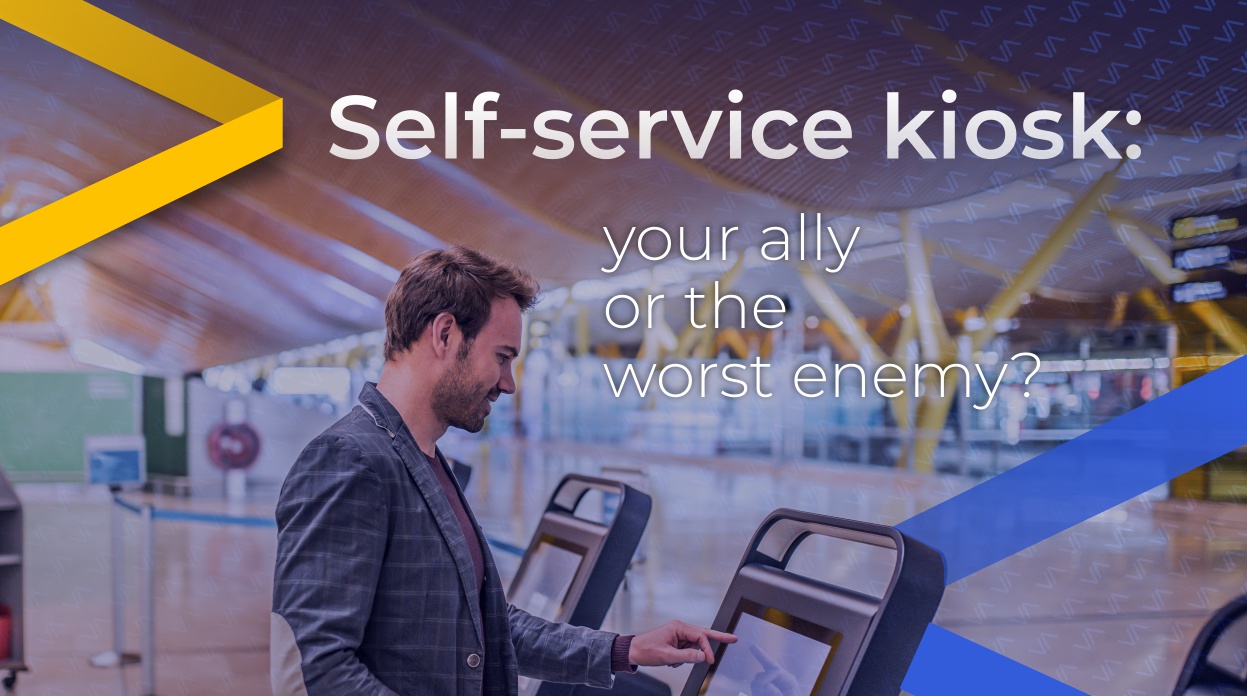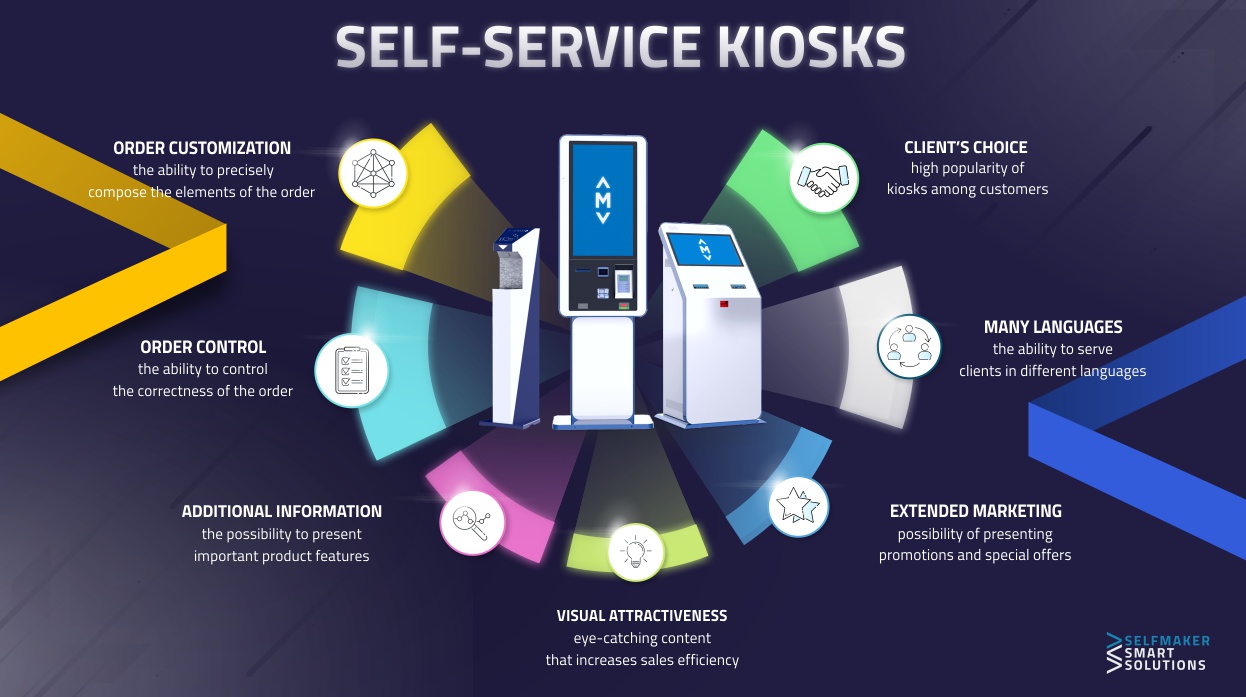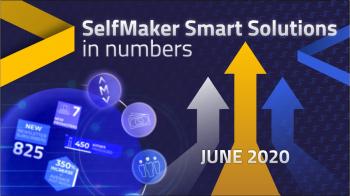Self-service kiosk: your ally or the worst enemy?

September 18, 2020 | #selfevolution academy
At SelfMaker, we love the vision of world automation, we are fascinated with it and we strongly support its implementation. No wonder, after all, we are a company that is based on this vision in its deepest foundations, that actively contributes by building self-service devices, developing technology towards expanding the spectrum of possibilities of using Artificial Intelligence, robotization and the Internet of Things in everyday life. It is our job and passion at the same time, and that’s why we understand all issues related with automation. However, we are aware that the idea of a self-service world is not always and not fully perceived as improving the quality of life, as a step in the right direction.
I don’t need you!
It won’t be any surprise that the greatest fears related to the delegation of some responsibilities to self-service devices raise the risk of people becoming more and more redundant. There is a deep belief that one day machines can take over jobs, do people out so much and in so many ways that they will cease to be an integral part of society. The risk of losing a job in favor of cheaper to maintain, but soulless equipment very strongly affects the imagination, especially now, when more and more often you can find vending machines, kiosks, self-service cash registers or automated shipping terminals. Pictures, which were the domain of science-fiction films several decades ago, are slowly becoming part of our reality, so the fear of the direction in which this whole trend will follow seems justified. But are you sure? We believe that it is absolutely different!
The devil is not so black as he is painted
So let's turn off the emotions and look with the cold eye at what self-service kiosks can offer us, as consumers, but also as those most interested - employees. Automation has been used for many years in factories, production plants, and industry, but its presence does not give such a clear view of the matter, so for the purposes of this text, let's focus on the establishments where the presence of self-service and Artificial Intelligence is already felt the most. At fast food restaurants, shops, hotels or elements of public transport infrastructure.
It is true that the main purpose of using self-service elements in such places is not the desire to repair the budget by dismissing employees, but by encouraging customers with increased comfort and a positive user experience. The use of kiosks improves guest satisfaction, increases the throughput of the checkout lines, but also relieves the staff both physically and mentally. All this, in the long run, affects increased sales and ultimately the success of a given restaurant or store.
Side by side, not against
A great example of human-machine cooperation is the McDonald's chain, in which the first kiosks were introduced almost 10 years ago. Experience shows that such a large-scale action did not result in any reduction of jobs, but it allowed to release valuable human resources by introducing services that took the chain's restaurants to the next level in terms of service quality (table service was introduced). Such an example of properly conducted automation, verifiable for each of us, shows that the fears are unfounded, and the reality is much more colorful than it may seem at first glance.
But what actually causes the positive feedback about the self-service kiosks?
- Personalized orders - Sometimes the complexity of an order can be a headache for the recipient. However, machines are not affected by this problem. They will humbly accept every fantasy, give the possibility to change the ingredients of the dish or personalize the service. Shy but picky people will feel an additional benefit - they don't have to feel embarrassed by their high expectations in front of anyone.
- Precision and control - where there is a human presence, there is always a risk of error. Thanks to kiosks, the customer takes responsibility from the employee and takes it on his own shoulders. That turn of events can be an advantage both for the staff and for the client who places a very complex, large and diverse order, such as a group dinner for a dozen people.
- Additional information - the presence of a visual communication when using a self-service kiosk expands the range of possibilities and information that can be quickly and easily provided to potential customers. Be it food values and ingredients, or additional technical parameters of the goods.
- Visual attractiveness - nothing stimulates the imagination, the senses and encourages to buy something, like a beautiful photo of a meal that we may soon have on a plate in front of us.
- Marketing opportunities - "How about French fries?" - sounds familiar? With a kiosk, this annoying question becomes a thing of the past and is replaced by a polite proposal to create a set or take advantage of additional promotion.
- Lack of language barriers - after proper preparation, the self-service kiosk enables comfortable service for customers using different languages, which gives a clear advantage, especially in tourist or culturally diverse regions.
- Customers’ choice - research shows that more than half of customers willingly use self-service solutions in restaurants or hotels. Younger people are particularly enthusiastic about kiosks.

What's around the corner?
Leaders in the gastronomy, hotel and transport industries have been launching further self-service "cannons" for a long time, which shows that the trend is still developing and will not stop in the coming years. Moreover, the possibilities offered by technology constantly expand the horizons and allow the introduction of innovative solutions that have not been possible to implement so far. However experts agree, optimistically admitting that the development of automation will never lead to the reduction of jobs by replacing people with machines, and rationally operated service and food providers will always put the good of man first. Of course, in many cases the nature of work will change, some duties will be replaced with others, but at this moment the vision of machines taking over such an important part of life as work remains only in the realm of distant fantasies.










